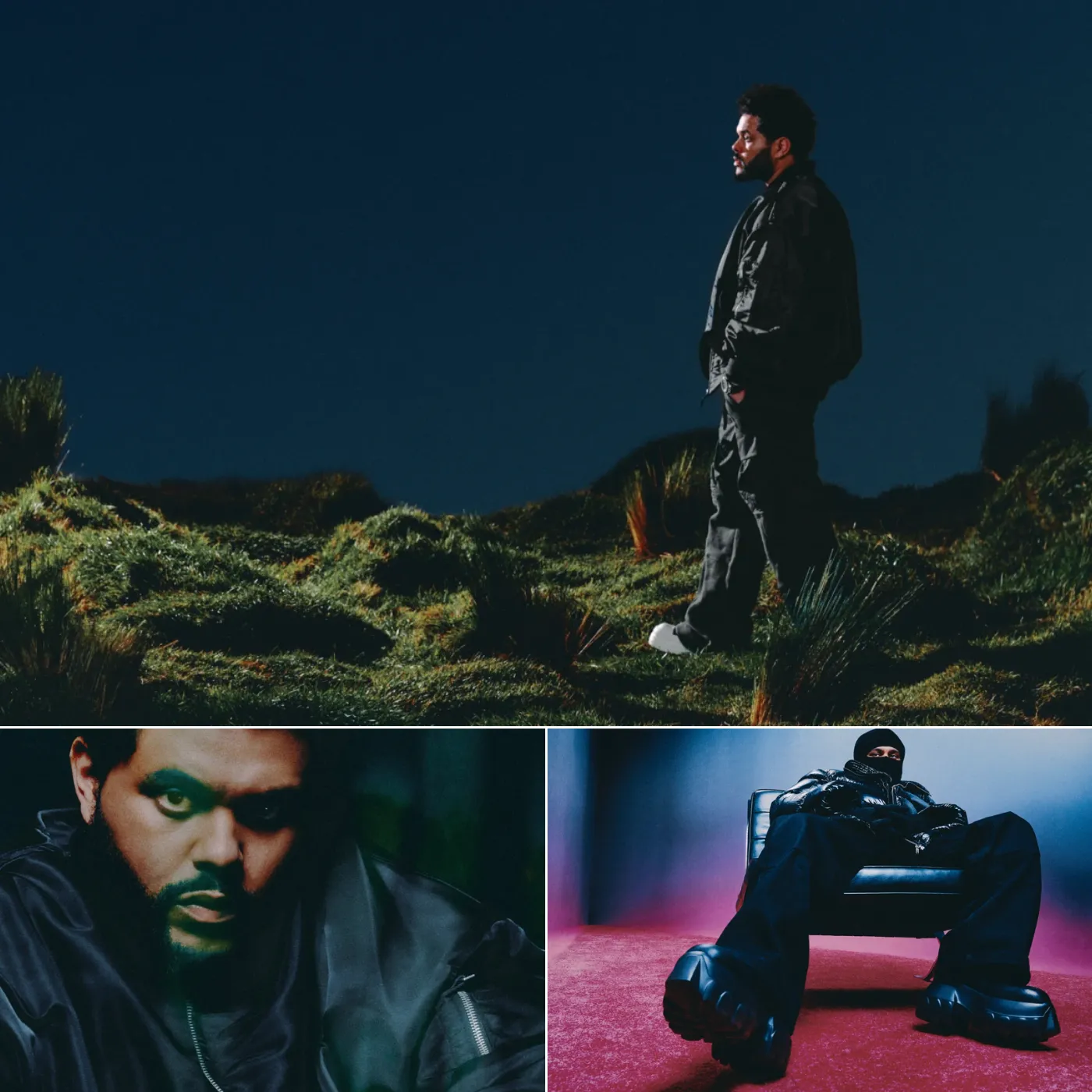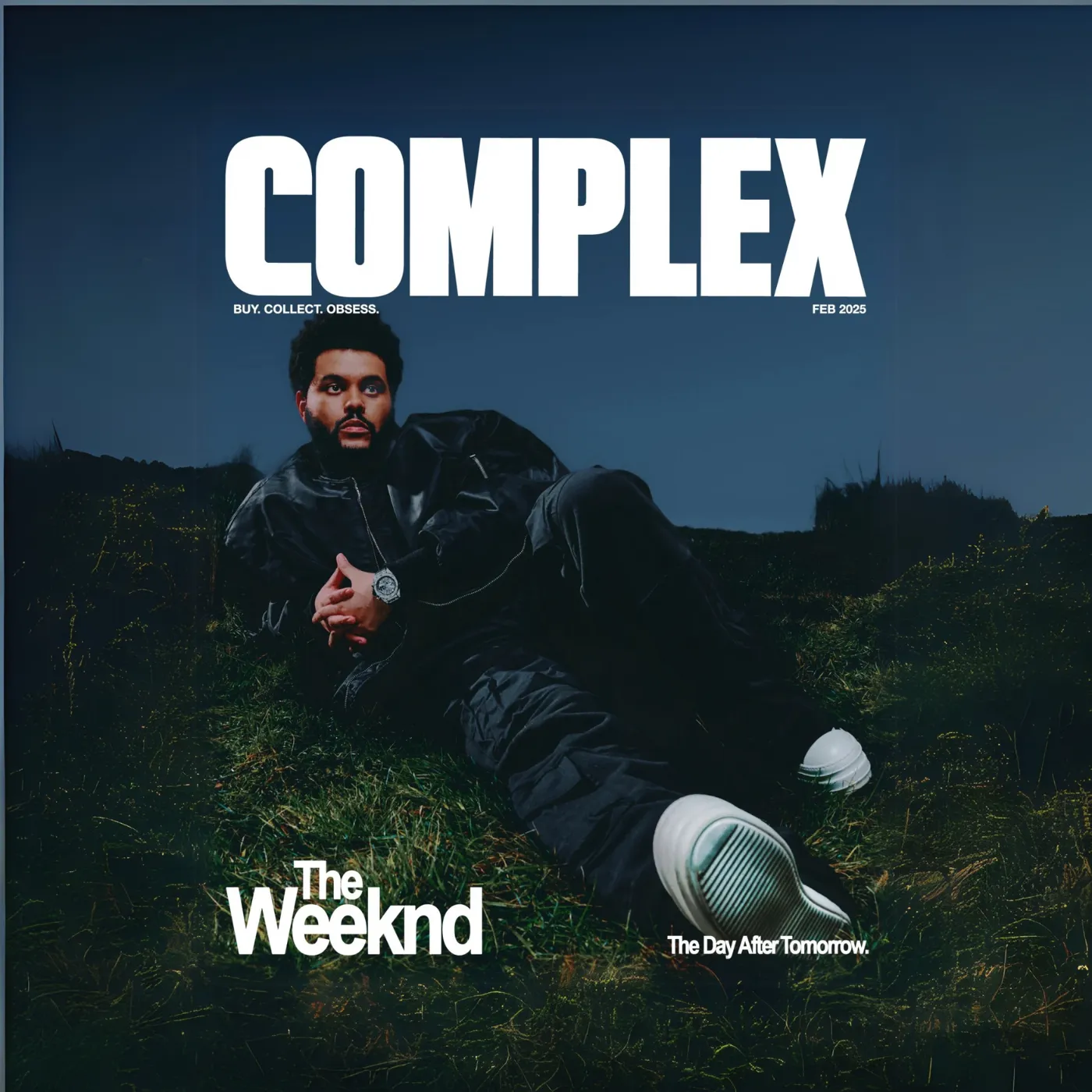

The Weeknd’s Evolution From Enigmatic Star to Cultural Icon
The Weeknd, or rather Abel Tesfaye, is at a pivotal moment in his career. As he continues his transition from his musical alter ego to his real identity, he remains one of the most influential artists of his generation. His latest album, Hurry Up Tomorrow, showcases his expansion as an artist while still delivering the haunting, genre-blending sound that made him a global superstar. Featuring collaborations with Lana Del Rey, Future, Travis Scott, Playboi Carti, Justice, Anitta, and legendary disco-pop producer Giorgio Moroder, the album cements The Weeknd’s place at the forefront of modern music.
With a first-week sales record of 490,500 units—his best to date—the album marks yet another milestone in his career, surpassing After Hours’s debut numbers. His collaboration with Playboi Carti, “Timeless,” has emerged as a standout hit, with 14 tracks from the album charting on the Billboard Hot 100. In an era where music consumption is dictated by algorithms, The Weeknd has mastered the art of making his sound inescapable, a voice that transcends genres and trends.
The Journey: From Anonymous to Iconic
Tesfaye’s rise in the music industry has been nothing short of cinematic. He began his career as an enigmatic figure, releasing music anonymously on YouTube before catapulting into mainstream success. His ability to craft dark, moody, and immersive soundscapes set him apart, making him one of the most unique artists in the digital age. His transformation from underground sensation to global superstar mirrors an AI-generated fable—equal parts Dante’s Divine Comedy, The Fast and the Furious, and Purple Rain.
Unlike many artists who chase trends, The Weeknd has consistently shaped them. His music, a blend of R&B, pop, and electronic influences, has redefined the sound of contemporary music. He has successfully sold out arenas worldwide while maintaining an underground mystique—a feat few artists can achieve.
Despite his fame, The Weeknd remains an elusive figure, reluctant to engage in traditional interviews. Since the beginning of his career, he has insisted that he has “nothing to say,” preferring to let his music speak for itself. However, in this rare conversation, he offers insights into his creative process, inspirations, and the philosophical underpinnings of his work.

The Making of Hurry Up Tomorrow
The album title, Hurry Up Tomorrow, suggests both optimism and urgency—perhaps a reflection of Tesfaye’s own internal conflicts. While the project is sonically rich and expansive, its themes remain deeply personal. When asked about which song is closest to his soul, he points to the title track, suggesting that it encapsulates his current mindset.
Tesfaye doesn’t believe music is dying, but he acknowledges that timeless music is becoming harder to find due to the overwhelming volume of content being released. His approach to songwriting is rooted in his belief that a great song can be about anything—as long as it’s crafted well.
Cinema is one of his primary inspirations. He views film as the ultimate art form, blending music, visuals, and storytelling. This cinematic approach extends to Hurry Up Tomorrow, which is not just an album but also the foundation for an upcoming film. Directed by Trey Edward Shults and co-written by Tesfaye and Reza Fahim, the film serves as both an extension and inspiration for the album.
The Impact of The Idol and Criticism
Following the controversial release of The Idol, Tesfaye reflects on the nature of criticism. He acknowledges that while constructive criticism can be helpful, it’s sometimes difficult to discern whether the critique is directed at his performance, the character he played, or his decision to take on the role. Ultimately, he refuses to dwell on it.
He also reveals that exhaustion and stress have been challenges in his career, but he has found an unconventional remedy—26-minute naps, which he describes as “astronaut naps.” He believes this brief but precise rest period helps him reset and maintain his creative energy.

The Weeknd’s Inspirations and Legacy
When discussing his artistic influences, Tesfaye names Mary Shelley, Claire Denis, and Lauryn Hill as key inspirations for this project. He also speaks highly of Giorgio Moroder, praising the producer’s ability to balance pop music and film scores seamlessly. Tesfaye views Moroder as the gold standard in integrating cinematic elements into music, which is evident in his own work.
On the subject of legacy, Tesfaye remains humble. When asked why so many people resonate with his music, he simply says he doesn’t know but is grateful. He believes his trilogy—House of Balloons, Thursday, and Echoes of Silence—was shaped by real-time events rather than a deliberate plan, much like the classic Star Wars and Godfather trilogies were shaped by the cultural and artistic landscapes of their times.
One of the defining traits of Tesfaye’s music is its ability to merge various elements seamlessly. His collaboration with Playboi Carti on “Timeless” is a prime example of this, bringing together their distinct styles into a cohesive and compelling track. He credits Pharrell as a major influence in helping bridge different sonic worlds.
The Future: Hurry Up Tomorrow and Beyond
As The Weeknd prepares to transition back to his birth name, Abel Tesfaye, he continues to push creative boundaries. His exploration of film alongside music suggests that he sees himself as more than just a musician—he is a storyteller, a director of emotion, and a curator of soundscapes that define cultural moments.
While Hurry Up Tomorrow serves as a new chapter, it’s clear that The Weeknd’s legacy is still being written. Whether under his stage name or real name, his influence on music, film, and pop culture is undeniable. As long as he continues to evolve and redefine artistic expression, he will remain a dominant force in the industry.
In a world where music and art are constantly shifting, The Weeknd stands as a testament to the power of reinvention. His ability to turn personal turmoil into universal anthems has solidified his place in music history. The party may evolve, but the soundtrack will always have his imprint.


















